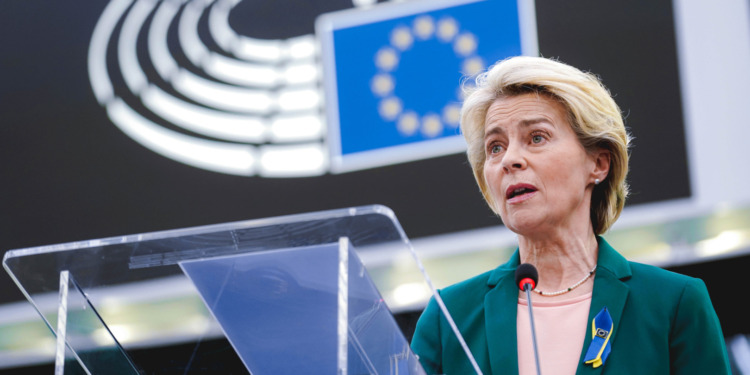In a significant move aimed at fostering stronger ties and sustainable economic growth, the European Union (EU) and Kenya have signed an Economic Partnership Agreement (EPA) — the “most ambitious trade deal ever signed by the EU with a developing country when it comes to sustainability provisions” according to the EU.
The agreement, as the EU explains, seeks to “boost bilateral trade in goods, increase investment flows, and contribute to sustainable economic growth,” providing a platform to “support job creation on both sides along with targeted cooperation to enhance Kenya’s economic development.”
Signing ceremony
The official signing ceremony, held in Nairobi, saw European Commission President Ursula von der Leyen and Kenyan President Dr. William Samoei Ruto at the helm. Both leaders lauded the agreement as a testament to the strengthened partnership between the EU and Kenya.
In Nairobi, Ursula von der Leyen encapsulated the spirit of this partnership:
“Kenya is a key partner for the European Union in Africa. The new Economic Partnership Agreement will boost bilateral trade even further, support investments and create good jobs in Kenya. This agreement will also contribute to sustainable and fair economic growth, bringing new opportunities for companies, to the benefit of both our people. It includes the strongest social and climate commitments of any EU trade deal with an African country.”
Elevating Bilateral Trade and Economic Growth
The EU stands as Kenya’s primary export hub and its second-largest trading ally, with a robust €3.3 billion bilateral trade recorded in 2022 — a notable 27% uptick from 2018.
Once it enters into force, the newly minted EPA will fully open the EU market for Kenyan products, creating “even more” opportunities for Kenyan businesses and exporters. The agreement is also expected to catalyze EU investments in Kenya “thanks to increased legal certainty and stability.”
A Partnership for Sustainability
Kenya’s strides in spearheading sustainability initiatives across Africa have not gone unnoticed. In the press release announcing the move, the EU commends Kenya’s “pioneering role in driving sustainability efforts” in Africa and describes it as a “reliable ally in the fight against climate change.”
For example, alongside the EU and other partners, Kenya co-leads the Coalition of Trade Ministers on Climate initiative, launched in 2023.
A Balanced Blueprint for Development
The EU explains that the deal “takes into account Kenya’s development needs by providing a longer period to gradually open its market” and includes special provisions to safeguard agriculture, food security and infant industry.
Related Articles: EU and Chile Announce Collaboration on Lithium and Green Hydrogen Projects | EU Unveils €4 Billion Funding Boost for Decarbonization Technologies | ‘Ground Zero of the Fast Fashion World:’ How Kenya Became the Fashion Industry’s Illegal Junkyard | EU’s New Ecodesign Rules to Make Products Last Longer
Moreover, the deal includes a chapter on bolstering economic and developmental cooperation, aiming to augment Kenya’s economic competitiveness.
Coupled with EU developmental aid, this strategic partnership seeks to capacitate Kenya in seamlessly implementing the EPA, aiding local farmers in aligning with EU standards, and harnessing the pact’s myriad benefits.
Moving forward
With the signing formalities concluded, the EPA will now go to the European Parliament for consent and will then enter into force.
This EPA, the EU writes, is an extension of the EU’s broader trade agenda and commitments to fortify trade relations with African partners and regions.
“The aim is to enhance sustainable trade links between both continents and within Africa itself, thereby meeting key objectives for both the EU-Africa relationship and the green transition,” the EU writes.
Editor’s Note: The opinions expressed here by the authors are their own, not those of Impakter.com — In the Featured Photo: European Commission President Ursula Von der Leyen, April 7, 2022, Featured Photo Credit: European Parliament / CC-BY-4.0 / © European Union 2022.









